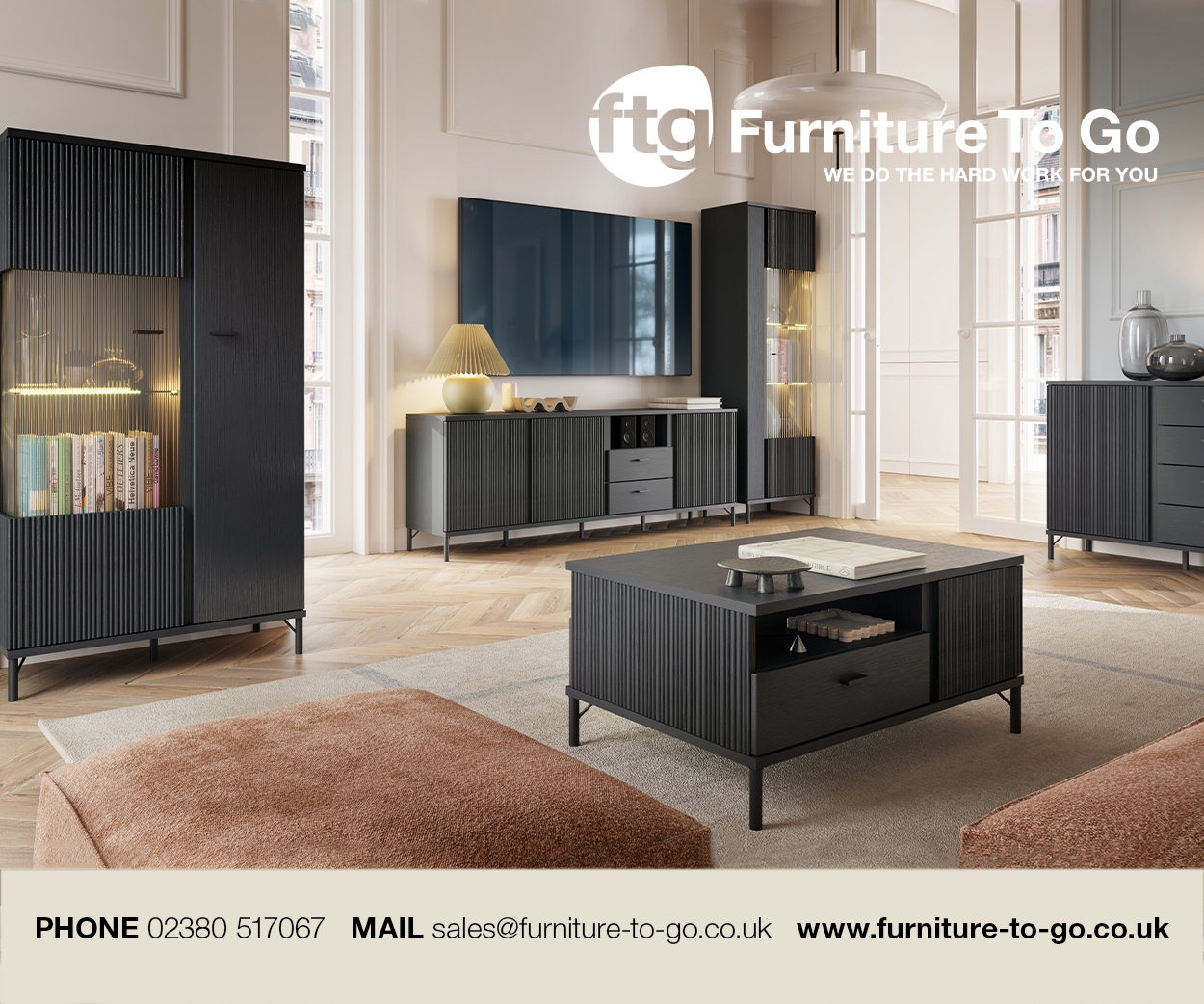Having long outgrown its native Poland, Forte enjoys an increasingly assured foothold in the UK marketplace, delivering stylish self-assembly collections tailored to local tastes. In February's issue, Furniture News meets Maria Florczuk – a member of Forte’s management board, and the daughter of Forte’s CEO, Maciej Formanowicz – who shares her experiences of growing up in the family business, overcoming recent challenges, and setting new standards in environmental and ethical practice …
What does your role entail? How has it changed over the years?
I started working at Forte in 2005, although it sometimes seems to me that I’ve been there since my childhood! I grew up in a house where Forte was present almost 24 hours a day, where it was born, and where it grew, and where I learned step by step how the company works. I got to know the industry and business naturally, during conversations with my father, and accompanying him on business trips.
Within the company (officially) I started by building the supply chain in Asia, and in the following years I was responsible for the purchase of direct production materials, then for the development and implementation of Forte’s purchasing strategy, the management of its central purchasing policy, and the optimisation of our raw material supply chain investments. In May 2014, I joined Forte’s management board.
What part of your job do you most enjoy?
Business is created by people, for people. Creative, open conversations with clients, suppliers and the team, during which we develop constructive solutions and ideas for further joint development, are my favourite element of my work.
What’s the most challenging area of your work right now?
The past few years have been very demanding. First Covid, then the war, which, apart from a lot of unnecessary suffering, also brought a number of economic challenges, including inflation, decline in demand and an unprecedented increase in the cost of basic raw materials. Through this accumulation of negative factors affecting the furniture industry, a key challenge is the efficient management of uncertainty.
From an operations perspective, would you say your processes have improved thanks to Covid-19?
The pandemic surprised everyone and turned our lives upside down, but at the same time it was a test of corporate responsibility. At Forte, we passed this exam – mainly thanks to the commitment, understanding and co-operation of the entire team.
We took care of many things and processes, efficiently switched to remote work, and introduced a number of rules and procedures regarding health and safety during meetings, receipt of goods and moving around the production and warehouse halls. When the environment changed again, we didn’t stop production, and that pandemic experience is now really paying off.
What challenges does the ongoing conflict in Ukraine present?
It is difficult to estimate the effects of the war. Today, like most companies, we are facing a huge increase in energy and material prices, while soaring inflation and growing social unrest create a drop in demand for furniture.
Does the scale of your business create any significant benefits that your competitors cannot boast?
Our unquestionable advantage is the access to our own raw material, thanks to our own chipboard factory. It is a very modern investment, with many environmentally friendly solutions.
Thanks to our presence in over 45 countries, we have a very well-developed logistics network, which allows us to flexibly adjust to suit various customer needs. Another advantage is our stable, repeatable and coninuously improved processes around quality, safety, environmental compatibility and the legality of obtaining raw materials, which are confirmed by our ISO, ICS and FSC certifications, and the positive result of our SMETA audit.
Read about Forte’s efforts in the field of sustainability and CSR in the full article, here.







